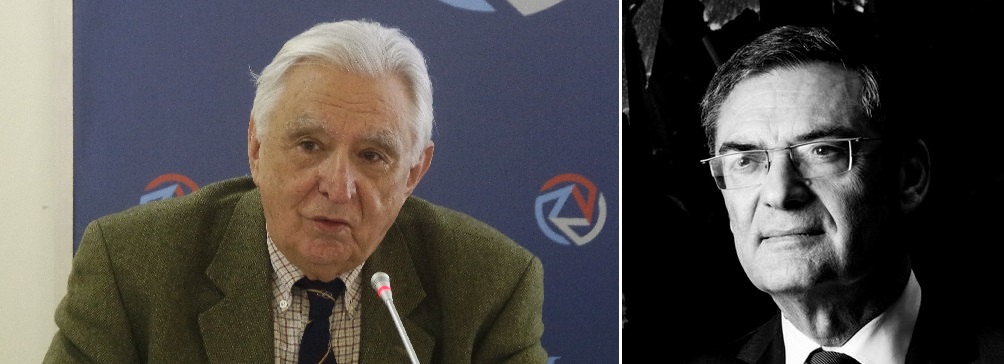
Pulat TACAR
Ambassador (R)
I found out that Patrick Devedjian passed away from COVID-19 on 29 March. In our culture, we do not speak ill of the dead; we wish them to rest in peace and extend our condolences to their family.
The French citizen of Armenian origin Devedjian was known in France and the Western world for his political identity, as he had served as a deputy to the French parliament and a minister during the terms of former Presidents Jacques Chirac and Nicolas Sarkozy. However, those who have engaged in the Turkish-Armenian controversy based on historical issues also know Devedjian with a different identity. Within this framework, I would like to share here some of my observations and events that Devedjian’s passing has reminded me:
A bomb attack orchestrated against the Lebanese Al-Watan Al-Arabi newspaper in Paris on April 1982, which was unrelated to the Turkish-Armenian conflict, had changed the viewpoint of the French authorities towards terror attacks.[1] France, which had up until that time turned a blind eye towards militant Armenian organizations such as ASALA that were orchestrating terror attacks against Turkish diplomats, was now convinced that these attacks had crossed the “acceptable” line. Most likely with President François Mitterand’s clear directive, action was taken to no longer ignore ASALA’s activities and to prevent them. A promise was made to the organization that, in return for ASALA ending its terror attacks against the Turkish diplomats in France, France would make an attempt towards the adoption of a resolution regarding the recognition of the Armenian genocide claims in the European Communities (EC) Parliament (European Parliament-EP) (1984-1987). While these developments were taking place, I was serving as Turkey’s Permanent Representative at the EC.
Patrick Devedjian was among the individuals who ensured contact and consensus, and who conducted the coordination between ASALA and the French government. Prior to the resolution that was promised to be adopted in the EP, Devedjian mediated the arranging of someone under the title “secretary” to provide security and retain control over Belgian Jaak Vandemeulebroucke, who was assigned to prepare a report on the “political resolution of the Armenian issue”. Mr. M. Israel, who was the previous EP Rapporteur and a French citizen of Jewish origin, had refused to write a report in the way that the Armenian lobbyists with Devedjian’s mindset had wanted.
During every meeting I had with Vandemeulebroucke, that “secretary” was present and recorded our conversations. The group that Devedjian was a member of initially had the original Vandemeulebroucke Report written in French. Afterwards, the report was translated to Vandemeulebroucke’s mother tongue of Flemish and was slipped into his hand.
Actually, at the beginning, during a one-on-one lunch I was able to have with Vandemeulebroucke, he had accepted to come to Turkey and to add the Turkish views into his report. The said rapporteur was to come to Turkey, listen to the Turkish views and would be able to meet with any Turkish citizens of Armenian origin as he pleased. However, Devedjian and his organization prevented Vandemeulebroucke from visiting Turkey and benefitting from the documents that we had given to him. The report was presented to the Political Affairs Committee of the European Parliament.
In the vote at the Political Affairs Committee, we were able to obtain the rejection of the proposal regarding the genocide subject based on the aforesaid report with a small difference of one vote (16 no, 15 yes). I know of these developments very well, as the voice recordings of all the speeches were one way or another sent to me on the evening of the voting session. The Italian Committee President Mr. Formigoni was saying in a panic-stricken way; “look, the draft has been rejected, I am putting it to the vote once again”; but this would be an atypical re-voting. A German parliamentarian objected to the proposal being voted for a second time; however, the president did not listen to this objection and put the proposal to the vote once again; the report was rejected 16 to 15 once again. A rejected report being brought to the agenda once again -according to the EP bylaw- was not possible. Despite this, Formigoni was pressured to bring this subject to the agenda again, but he resisted. However, after five months when Formigoni’s term came to an end, another Italian named Mr. Ercini was assigned as the Committee President.
Ercini brought the report back onto the agenda as if nothing had happened and ignored the objections. We ensured that the parliamentarians who supported the Turkish views objected to the Bylaw Committee; however, this objection was not even brought to the agenda. This time, German parliamentarian Klaus Hänsch who was a member of the Political Affairs Committee (he became the EP President afterwards) ensured that all the genocide words in the proposal introduced by the French parliamentarians were one by one put to a vote and removed from the text. This proposal that was being attempted to be adopted for propaganda purposes was rendered meaningless as a result of the “genocide” references being removed.
At this stage, French politicians including Devedjian got involved once again and, in brief, stated; “Do not object at the Political Affairs Committee, ensure the forwarding of the report to the EP Plenary Session, we will add those references at the Plenary Session”. In essence, these attempts were initiated by the French Socialist Party; however, the French right wing were also supporting similar attempts in order to not fall behind on this subject.
On June 1987, some parliamentarians who were to vote against the draft resolution at the EP were threatened and were prevented from entering the session room where the vote was being conducted by a team of armed Armenian militants who had entered the building. Some parliamentarians did not go to the Parliament that day due to fear. When looking from the parliamentarians’ perspective, would someone who had no interest whatsoever in the Turkish-Armenian conflict put themselves in danger for this subject? During the voting session, German parliamentarian Rudolf Wedekind stated at the podium that he had been threatened by gun display in the EP and had this recorded in the proceedings. The session president Ms. Pery -unbelievably- laughed at Wedekind’s objections and resumed the session. The “genocide” references that had been removed from the text at the Political Affairs Committee, in addition to other articles that parliamentarians of Greek origin suggested, were added to the text. At that time, there were approximately 50 deputies in the 650-member parliament. The Armenian diaspora organizations had filled up the audience section of the parliament hall and were shouting and demonstrating.
The day of the vote was very rainy. Hundreds of buses had brought militants from various places of France. The parliament was surrounded: One could not enter or leave. It was as if there was a state of emergency. A podium was placed outside the building and those who spoke provoked the people who had gathered there. With the intent of relaying the screams and the ignominy, I had Ankara listen via telephone as if it was a live broadcast.
One of the people who contrived and implemented this scenario and organized everything that day was Patrick Devedjian. The person who informed me of this case was a French European Parliament member from Devedjian’s party who wanted to vote in our favor but did not attend the voting session out of fear.
For this reason, after the vote, I had stated that “To me, the European Parliament decision is no different than a dirty handkerchief” and added: “When it is a matter concerning Turkey, especially if the ‘Armenian issue’ is involved, this is how democracy is implemented within the EP framework”.[2]
Fortunately, these political initiatives and genocide propaganda hit the legal wall on 17 December 2003. In a lawsuit that was filed by two French citizens of Armenian origin that was connected to the 1987 parliament resolution and Turkey’s European Union candidacy, the European Court of Justice delivered this evaluation regarding the resolution:[3]
“It suffices to point out that the 1987 resolution is a document containing declarations of a purely political nature, which may be amended by the [European] Parliament at any time. It cannot therefore have binding legal consequences for its author nor, a fortiori, for the other defendant institutions.”
*Photograph: Pulat Tacar (left), Patrick Devedjian (right)
**The original Turkish-language version of this article was published on AVİM’s website on 3 April 2020: https://www.avim.org.tr/Blog/PATRIK-DEVECIYAN-IN-VEFATI-UZERINE-03-04-2020
[1] For detailed information: Pulat Tacar, “Çok Özel İşler” (“Des Affaires Tres Spéciales”), Ermeni Araştırmaları, Sayı 45 (2013), kitap özeti, p. 245-262 ; Pulat Tacar, “Le Terrorisme Armenien Apres L’age D’or” (“Altın Çağından Sonra Ermeni Terörizmi”), Ermeni Araştırmaları, Sayı 46 (2013), kitap tahlili, p. 213-225 ; Pulat Tacar, “Fransa’nın Ermeni Terörü İle İlişkisi Hakkında İki Kitap Özeti,” Ermeni Araştırmaları, Sayı 46 (2013), kitap tahlili, p. 227-239 (I reviewed two books here: Charles Villeneuve and Jean-Pierre Peret’s Secrets du terrorisme (The Secret Sides of Terrorism) and Michel Lespart’s Ölüm Onların Gözüyle Bakacak-Terör Eylemleri (Death Will Look Through Their Eyes-Acts of Terror)). The works I reviewed in these analyses prove that, at that time, many diaspora Armenians were praising the terror attacks perpetrated by militant Armenian organizations and that they were perceiving them as representing a “golden era”.
[2] I also explained the events and my observations regarding this process in an article I prepared for the Review of Armenian Studies journal in 2005. Please see: Pulat Tacar, “The Tale of European Parliament’s 1987 Resolution Entitled ‘Political Solution To The Armenian Question,” Review of Armenian Studies 3, Issue 9 (2005), p. 45-60.
[3] “Order Of The Court Of First Instance, 17 December 2003 - In Case T-346/03,” Court of Justice of the European Union, December 17 2003, clause 19, page II – 6048, http://curia.europa.eu/juris/showPdf.jsf?text=&docid=48869&doclang=EN
© 2009-2025 Avrasya İncelemeleri Merkezi (AVİM) Tüm Hakları Saklıdır
Henüz Yorum Yapılmamış.
-
 "ERMENİ SOYKIRIMI" SUÇLAMALARI ALANINDA PARADİGMA DEĞİŞİKLİĞİ - 23.05.2019
"ERMENİ SOYKIRIMI" SUÇLAMALARI ALANINDA PARADİGMA DEĞİŞİKLİĞİ - 23.05.2019
Pulat TACAR 23.05.2019 -
 ON DEVEDJIAN’S PASSING - 10.04.2020
ON DEVEDJIAN’S PASSING - 10.04.2020
Pulat TACAR 14.04.2020 -
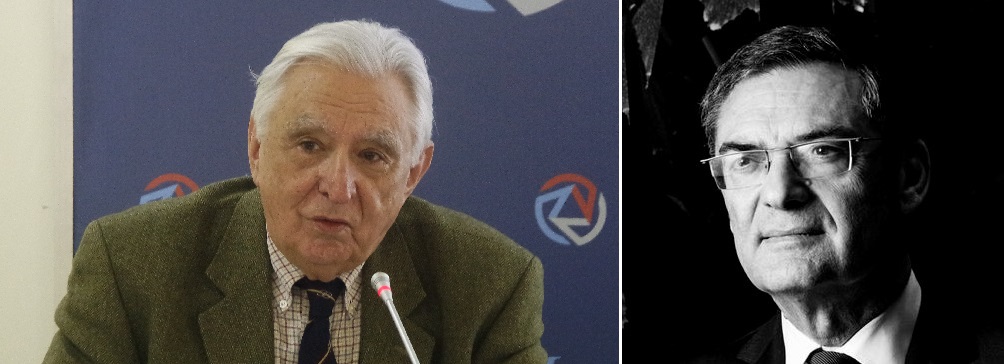 PATRİK DEVECİYAN’IN VEFATI ÜZERİNE - 03.04.2020
PATRİK DEVECİYAN’IN VEFATI ÜZERİNE - 03.04.2020
Pulat TACAR 03.04.2020 -
RADİKAL GAZETESİNDE MOKASEN AYAKKABILI BİR DAĞCI
Pulat TACAR 15.04.2012 -
ERMENİ ARAŞTIRMALARI ÖZEL SAYISI – "ERMENİLERİN SOYKIRIMI SAVINI YADSIYANLARI CEZALANDIRMAK VEYA TÜRKİYE’DEN TAZMİNAT ALMAK AMACI İLE YAPTIKLARI YARGI MÜCADELELERİ”
Pulat TACAR 13.08.2015
-
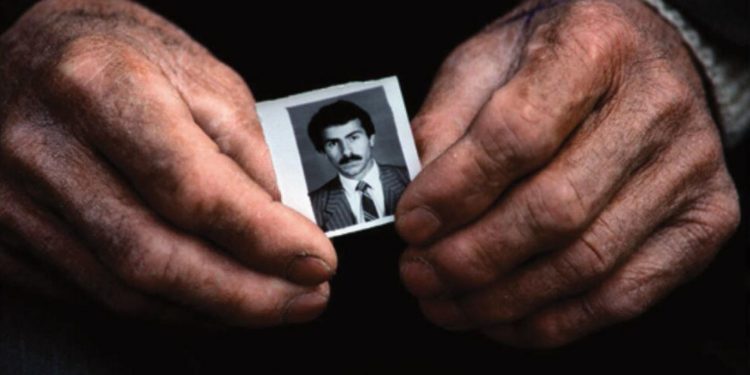 THE EUROPEAN MASS GRAVES YOU NEVER KNEW ABOUT - AZE.MEDIA - 11.08.2022
THE EUROPEAN MASS GRAVES YOU NEVER KNEW ABOUT - AZE.MEDIA - 11.08.2022
Taras KUZIO 07.10.2022 -
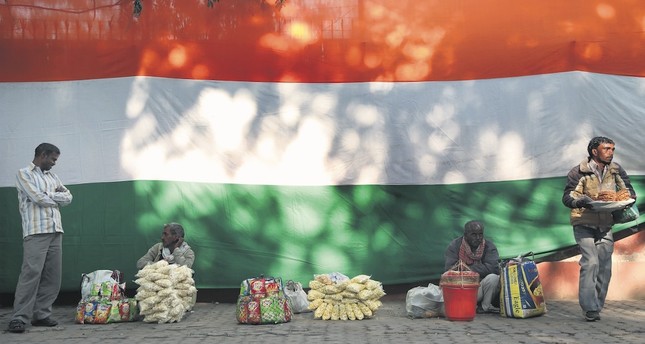 HİNDİSTAN DEMOKRASİSİ İÇİN KRİTİK YOL AYRIMI – DAILY SABAH – 02.01.2018
HİNDİSTAN DEMOKRASİSİ İÇİN KRİTİK YOL AYRIMI – DAILY SABAH – 02.01.2018
Teoman Ertuğrul TULUN 10.01.2018 -
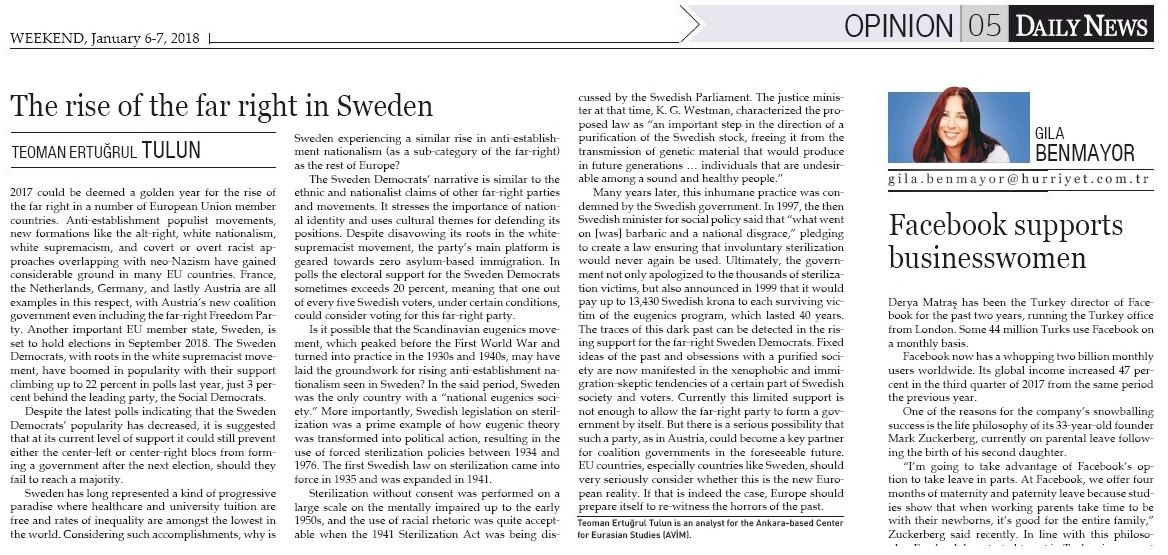 THE ANATOMY OF A FORGOTTEN ARMENIAN ASSASSINATION
THE ANATOMY OF A FORGOTTEN ARMENIAN ASSASSINATION
Haluk ŞAHİN 27.01.2016 -
 STRATEGICALLY MUM: THE SILENCE OF ARMENIANS (PART FIVE) - 08.2021
STRATEGICALLY MUM: THE SILENCE OF ARMENIANS (PART FIVE) - 08.2021
Iver TORIKIAN 03.12.2021 -
 JOSEP BORRELL AS EUROPE’S RACIST ‘GARDENER’ - AL JAZEERA - 17.10.2022
JOSEP BORRELL AS EUROPE’S RACIST ‘GARDENER’ - AL JAZEERA - 17.10.2022
Marwan BISHARA 19.10.2022


